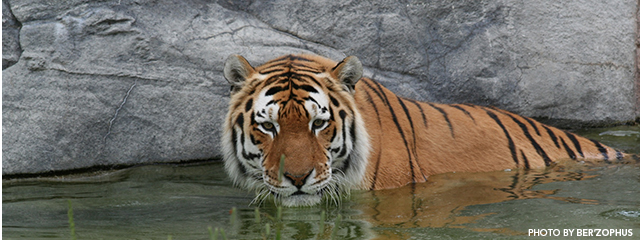The Holbrook Explorer

Wild Animals as Pets? Think Again.
Wild Animals as Pets? Think Again.
Many people view YouTube videos of friendly looking sloths lazily eating their food and think “They’re so cute! I wanna hug one.” My friends have said this countless times while perusing through numerous videos of exotic animals. Many states allow people to keep exotic animals as pets in their backyards and in their homes. According to Born Free USA, in Texas alone, there are more tigers in captivity than there are in the wild globally.
Difficult to Care for Wild Animals
As a result of the level of difficulty of caring for exotic animals, they often end up malnourished or neglected and live in inhumane conditions because the habitat provided is inadequate to their needs. Although keeping wild animals in houses or on small farms is illegal in many places, that doesn’t seem to stop people from trying to domesticate them.
Risk to Humans
Aside from all of the traumatic stories we've all seen about owners of exotic pets being attacked, severely injured or sometimes killed by their pets, humans are also put at risk for other reasons. Many wild animals carry variations of monkeypox, salmonella, the herpes B virus and staphylococcus, all of which can be transferred to humans.
Animal Suffering
During transportation while the animals are being imported, the conditions are grim. Birds often have their feet and beaks taped, infant snakes are shoved into tube socks then put into a suitcase and leopard cats and monkeys are shoved into backpacks. These conditions are grueling for the animals to be transported and smuggled internationally.
Domestication takes Centuries
It isn't so easy to domesticate a wild animal as being born in captivity or hand-raising it, according to the Humane Society. Dogs and cats have been domesticated by selective breeding to obtain desired traits for thousands of years and they are dependent on humans to provide food and shelter as well as to meet all of their needs. Wild animals have instincts to be self-sufficient and they fare best without human care or interference.
They Don't Stay Little Forever
Most baby animals are “cute” and “cuddly.” However, those lion cubs, chimpanzees and little sloths will all grow into a full-sized adult animal. Once their instincts kick in, they may become aggressive. Often times, owners cast them aside at this stage because they are unmanageable or are no longer cute. The biggest issue with releasing the wild animal is that they have not learned how to provide food and shelter for themselves because they were reliant on the owner to take care of them and as a result they can become ill or die.

